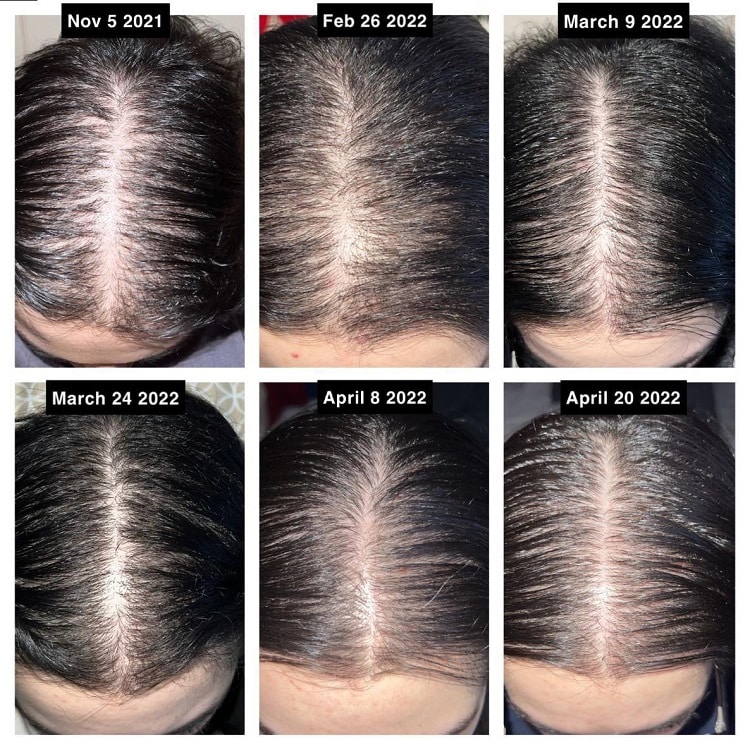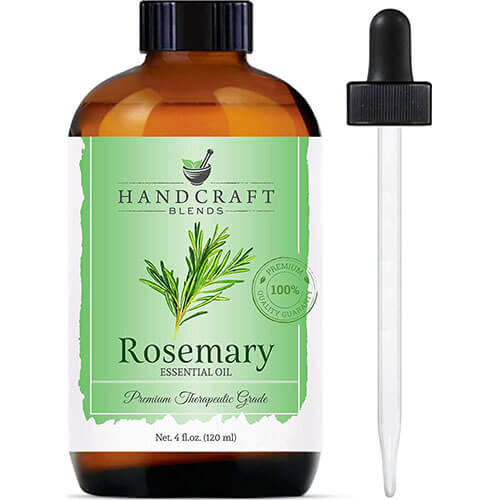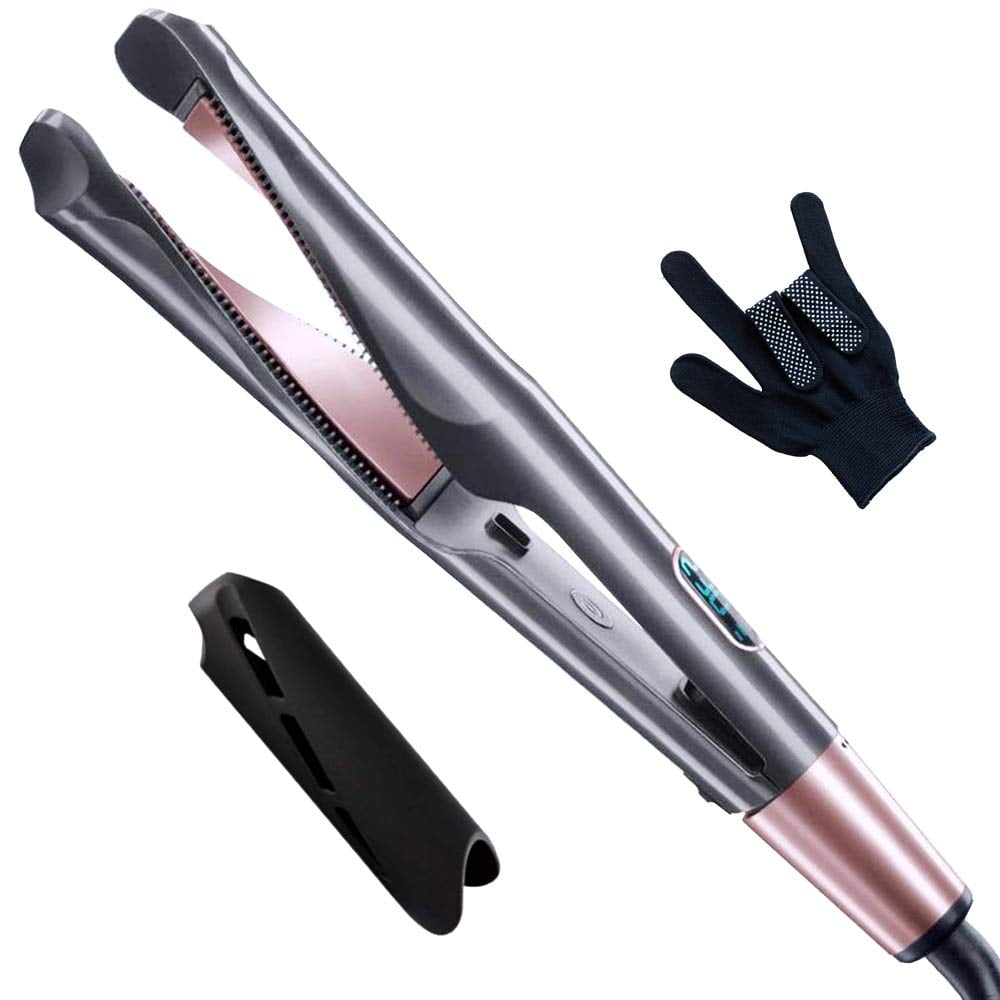Table Of Content
- What makes rosemary oil effective for hair growth?
- The Rosemary Oil, Minoxidil, Hair Loss “Breakthrough” Study
- Rosemary Oil for Different Hair Types
- Rosemary Oil Is Anti-Inflammatory
- Rosemary oil for hair benefits
- Other Natural Remedies for Hair Growth
- Don't Miss This Rare Sale On My Favorite Product For Supple Skin & Healthier Hair

"If irritation occurs, gently wipe off the rosemary oil with soap and water," the expert continues, adding that the irritation should subside quickly. But if it persists, she suggests an over-the-counter cortisone cream to shut down symptoms quickly. Above all, pinpointing the cause of your hair thinning or loss is crucial. Dr. Murphy-Rose stresses that while rosemary oil and minoxidil can be good options for treating hormonal thinning caused by DHT, they might not be the optimal solution for every individual. With various causes of hair loss in play, the right treatment approach can differ. For the best course of action, it's best to seek professional guidance from a board-certified derm.

What makes rosemary oil effective for hair growth?
This volatile oil (rosemary oil) contains a number of bioactive antioxidants – rosmarinic acid, carnosic acid, ethanolic acid, 1,8-cineole, and camphor (to name only a few). And fortunately for us, these specific compounds within rosemary oil have a variety of pro-hair effects. And all seasonality aside, there’s a good chance both test groups would’ve lost hair over the same period had they not sought either treatment. Some users claimed the “natural” alternative to Rogaine had finally arrived. Others offered to dump their Rogaine and instead switch to rosemary oil.
The Rosemary Oil, Minoxidil, Hair Loss “Breakthrough” Study
Because rosemary essential oil is highly concentrated, it's important to use it with caution if you plan to use it on its own. Add a few drops into the palm of your hand and mix with a carrier oil like jojoba, rosehip, or coconut oil. "Men can use rosemary oils at the base of the roots, one to three times per week or less often if the hair is already oily," says Dr. Kobets.
Rosemary Oil for Different Hair Types
While these products won't make hair regrow or grow back, it can enhance the look of the hair you have and make it look thicker. Being gentle with your hair - and avoiding using heat from hairdryers or straighteners on it - will also keep it looking healthier. Avoid brushing it when it's wet or vigorously towel drying it, as this can lead to the strands breaking. Also, try not to style your hair in a tight ponytail or bun, as this can pull the hair. This purifying shampoo is recommended by Shamban due to the invigorating scent of rosemary and being free of harmful hair ingredients like silicone and parabens.
Rosemary Oil Is Anti-Inflammatory
Secondly, the study was done for a realistic length of time – six months. Many human hair loss studies last just three months – barely enough time to gauge a measurable effect on hair growth. And if there’s one thing I’ve learned during my ten years of hair loss research, it’s that everything regrows hair on rats – but rarely do those results carry over to humans. In fact, when we dive into the data behind the rosemary oil-minoxidil hair loss study, the results are much more surprising… and even more important (and for an entirely different reason). Choosing something with a higher concentration of rosemary oil may be an effective option for some people.
Can You Use Rosemary Oil for Hair Growth? - Yahoo Life
Can You Use Rosemary Oil for Hair Growth?.
Posted: Wed, 13 Mar 2024 07:00:00 GMT [source]
Rosemary oil for hair benefits
As with all hair growth oils, rosemary oil devotees recommend applying the purported remedy straight to the scalp. However, if used undiluted or in excess, it can cause scalp irritation, which may indirectly lead to hair loss. Rosemary oil is a natural remedy, but that does not mean it is safe for everyone. Those with sensitive skin may get irritation, rashes or other skin issues when using it. This editor-approved oil contains over 30 essential oils and nutrients in one bottle, but the VIP is rosemary oil.
Rosemary oil’s benefits go way beyond improving mental well-being and skin health. In other studies, carnosic acid, an active ingredient found in rosemary oil, can help restore hair growth when applied to the scalp since it has been shown to heal and rejuvenate nerves. TikTok and Instagram have certainly hyped up its greatness (particularly since there’s little evidence to support the efficacy of hair growth vitamins), but what’s actually the truth and what’s fiction? Well, we turned to the experts for the facts on using rosemary oil for hair and learned there’s so much more to this essential oil other than great taste.
Other Natural Remedies for Hair Growth
Bergamy suggests adding it to your shampoo or conditioner to get the benefits while washing your hair. Just be sure to thoroughly wash your hair to get the product out well. People should also avoid getting rosemary oil in their eyes or mouths and should keep it out of reach of children. While rosemary cannot be used as a standalone hair dye, it can help enhance and darken the color of dark or brown hair when used as a rinse or in combination with other natural ingredients.
Don't Miss This Rare Sale On My Favorite Product For Supple Skin & Healthier Hair
But he took it a step further… He also combined these massages with the application of rosemary oil. Furthermore, certain polyphenolic compounds derived from rosemary have been shown to reduce neutrophil influx into inflamed tissue and lower the excretion of inflammatory cytokines. Unfortunately, chronic inflammation is part of the hair loss cascade. Depending on the season, hair cycles can increase (or decrease) our total hair count and density by as much as 10%. Anyone who owns a dog knows how much they shed during certain parts of the summer and winter. Believe it or not, humans also undergo a similar (but less drastic) effect.
Based on the evidence, rosemary oil has a mild effect on pattern hair loss – one that’s equivalent to 2% minoxidil. And while rosemary oil may make a good “natural” alternative to Rogaine, it’s our belief that it probably won’t regrow a significant amount of hair – at least not on its own. Two different hair loss treatments; yet two similar mechanisms of action at play. And when we compare those photo sets to our one-off case study, it’s harder to deny that these mechanisms of action may promote a strong, synergistic hair regrowth effect. In fact, there’s some mechanistic evidence that rosemary oil (when combined with another hair loss treatment) may become additionally more effective at recovering lost hair.
Dilute the essential oil with a carrier oil when using it on the hair and scalp. In addition to reducing hair loss and stimulating hair growth, rosemary has been linked to other hair and scalp benefits, including reducing dandruff and limiting premature graying. The benefits are endorsed due to the plant's antioxidant, anti-inflammatory, and neurological properties. One such benefit is its use in promoting hair growth and preventing hair loss. After six months of twice-daily application, rosemary oil significantly increased scalp hair count… and just as much as 2% minoxidil (the active ingredient used in Rogaine).
Coarse hair may be better able to handle an application of rosemary oil. But people with finer hair might find that using the product makes their locks look greasy or weighed down. Carnosic acid carries anti-inflammatory and antioxidant properties that can help rejuvenate damaged nerves and tissue in your body. Applying it to your scalp creates an environment where your hair can thrive. Rosemary essential oil is a potent oil extracted from rosemary leaves and flowery tops. It’s safe for all hair types, even color-treated hair, says Dr. Garlapati.
This includes using the oil in moderation, ensuring it is adequately diluted, and applying it correctly to the scalp. Massaging the oil into the scalp can also help to stimulate hair growth by improving blood circulation. When researching how best to apply rosemary oil to hair, I found that most people added it either into their shampoo or a carrier oil, like almond oil or coconut oil.
While these natural remedies can be effective in promoting hair growth, it's important to remember that they may not work for everyone. If you're experiencing hair loss or other hair problems, it's important to talk to your doctor or a qualified hair specialist for personalized advice and treatment options. Additionally, a study conducted on mice showed that topical application of rosemary oil increased hair growth and decreased hair loss compared to a control group (3). When using rosemary oil, it is essential to dilute it properly to avoid skin irritation. You should also perform a patch test before using it on your scalp to ensure you are not allergic. Much like oregano, peppermint, and cinnamon, rosemary is frequently found in essential oil form.

















